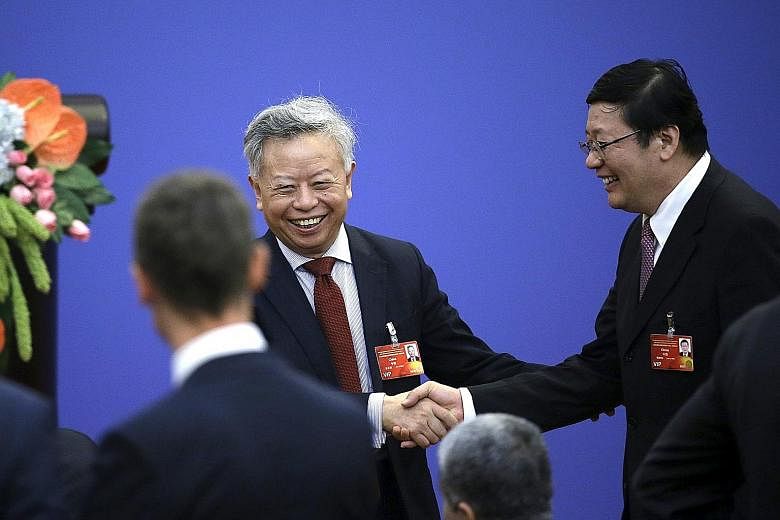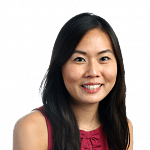When China scored one of its biggest diplomatic coups on the world stage, a lot of the credit went to Mr Jin Liqun.
The 66-year-old former finance vice-minister shepherded the Beijing-led Asian Infrastructure Investment Bank (AIIB) into existence with an impressive list of more than 50 founding members.
The move split traditional alliances as American allies such as Britain, Australia and South Korea broke ranks with the United States in a last-minute rush to join the bank.
Mr Jin was last week chosen as president-elect by shareholder members of the controversial US$100 billion (S$140.9 billion) multilateral lender, which is widely seen as a rival to the US-dominated World Bank and the Japan-led Asian Development Bank (ADB).
A former vice-president at the ADB, the urbane Mr Jin, who is fluent in English and speaks French, is the consummate "barbarian handler", according to people quoted in a Financial Times article chronicling China's AIIB success.
Mr Jin, they said, is an Anglophile who likes to quote Shakespeare to the English, tell the French how enamoured he is of their culture and charm the Germans by telling them they are his favourites because of their honesty. His ability to play members of the European Union off against each other is legendary in Beijing, the article said.
Born in Changshu city in coastal Jiangsu province, his father was a teacher. He always had a love for literature, philosophy and English and was said to have indulged in the third edition of Webster's New World Dictionary in high school, a rare collection in schools at that time.
"It was precious to me, while seldom used by my classmates," he recalled in a Xinhua news agency report."Studying was intense, but I also took the time to read English books in the library."
But his school years were disrupted by the Cultural Revolution from 1966 to 1976, when Mao Zedong forced millions of young people into the countryside in a bid to transform them into ideologically pure, proletarian labourers.
At 19, Mr Jin was sent to work full time in the fields, but his hunger for knowledge never faltered.
Works of Shakespeare given to him by his high school teacher were his only consolation after a day of back-breaking work, he revealed to Xinhua.
He worked in the fields for 10 years before the end of the Cultural Revolution gave him a new lease of life. The high school graduate enrolled directly in a post-graduate programme majoring in British and American literature at Beijing Foreign Studies University in 1978 - the first batch of post-revolution graduate students.
He worked for the Ministry of Finance after graduating, before enrolling in an economics graduate programme as a Hubert Humphrey fellow at Boston University in 1987.
Known as a "skilled troubleshooter" who drinks coffee and not baijiu - a fiery sorghum-based Chinese liquor - Mr Jin was said to have two books on his desk after becoming vice-president of the ADB in 2003: one was an ancient Chinese history book with annotations by Mao, the other was the Britannica encyclopaedia - an Eastern and a Western influence that still represent the balance he is trying to bring to the AIIB as its president.
Mr Jin later became the chairman of the board of supervisors of China Investment Corporation, the country's US$740 billion sovereign wealth fund, before entering the investment banking and securities sector as chairman of China International Capital Corporation in 2013.
His daughter, Ms Jin Keyu, 32, has inherited his flair for economics, becoming the youngest person to gain tenure as a professor at the London School of Economics at the age of 26. She also speaks four languages and plays the piano and clarinet.
But Mr Jin's latest position might prove to be his toughest one yet.
Experts say the president of the AIIB - considered a powerful symbol of the eastward shift of global power - will need to strike a delicate balance between the interests of Eastern and Western member states. That would mean making Beijing's voice heard, while avoiding the impression that the bank is a tool to promote China's interests.
Mr Jin is ready for the challenge.
"A person's fate is deeply influenced by his country's policies and the changes of his generation; that is how my life has been," he was quoted as saying in a recent Time Weekly article.
Experts say the president of the AIIB - considered a powerful symbol of the eastward shift of global power - will need to strike a delicate balance between the interests of Eastern and Western member states. That would mean making Beijing's voice heard, while avoiding the impression that the bank is a tool to promote China's interests.


